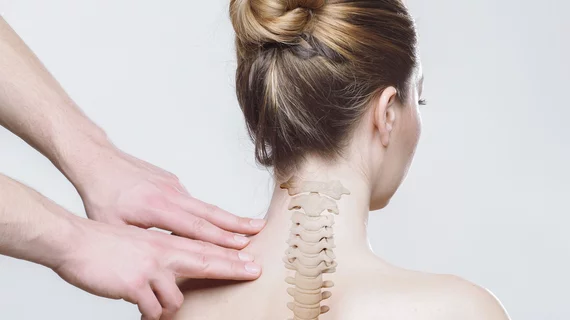$30K up for grabs in new AI challenge from RSNA
Americans suffer more than 1 million fractured vertebrae every year. RSNA’s latest AI competition may help advance precision detection and classification of this unfortunately common source of pain and potential debilitation.
Focusing on literal pains in the neck, the “RSNA Cervical Spine Fracture AI Challenge” will equip contestants with a generous training dataset of around 2,800 cervical spine CTs—half negative, half positive—from 12 institutions in nine countries across six different continents.
Ground-truth diagnoses have already been established within the dataset by spine radiology specialists from the American Society of Neuroradiology (ASNR) and the American Society of Spine Radiology (ASSR).
The winning entrants will develop machine learning models that match or beat the subspecialists’ performance at detecting and localizing fractures.
The 10 best-performing entrants will take home a share of a $30,000 purse.
In announcing the challenge, RSNA notes that the seven cervical vertebrae are the most commonly fractured along the whole of the spine.
“Elderly populations are particularly vulnerable, and fractures can be more difficult to detect on imaging due to superimposed degenerative disease and osteoporosis,” RSNA adds.
More:
Quickly detecting the location of any vertebral fractures [on CT] is essential to prevent neurologic deterioration and paralysis after trauma. Researchers hope that AI can assist in expeditiously identifying and localizing fractures.”
The competition phase will be completed in time for winners to be recognized at RSNA 2022 in Chicago after Thanksgiving.
For information on RSNA AI challenges past and present, click here or email informatics@rsna.org.

